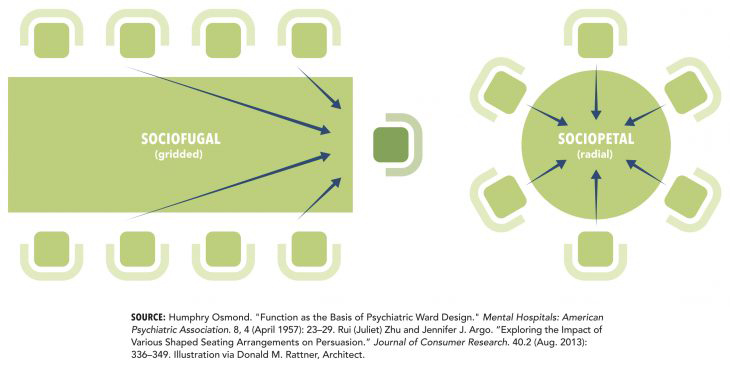In today’s workforce, businesses need to stay competitive in order to attract and retain talented and dedicated teams. Overwhelmingly, two of the most important qualities employees are looking for in an employer include strong culture and approachable leadership. Everything in your workspace, from the desk layout to the breakroom, contributes to the development of culture and speaks to the hierarchy of power within your company. Creating collaborative and comfortable workspaces where employees have the opportunity to work side by side with their managers is an effective way of strengthening culture – but have you considered what your conference table is saying about your employees?
Chances are, you haven’t put too much thought into your conference table beyond how many people can fit around it. However, there is a lot that can be inferred from the way your conference room is set up. We were inspired by this article by Donald Rattner to share some of our thoughts on conference tables and conference room design with you.
Many companies are still using outdated conference tables designed to promote a “hierarchical management” meeting style that dates back to the Industrial Era. There is room for one person at the head of the table, and everyone else has a clear position toward the front, middle, or back of the room. This can create feelings of intimidation and irrelevance among employees.
To foster a collaborative culture, it’s important that everyone feel they have an equal voice at the table and feel welcome to speak up. There are a few things to consider when selecting a conference table that make a big difference in creating an environment of teamwork:
Table size. Smaller tables are great for promoting collaboration. Smaller meetings prove to be more productive as everyone can see each other and engage in an easier, more relaxed environment – without the hierarchical feeling of a long table. If you have need for a bigger table that can accommodate large groups or you need a formal conference room for customer or shareholder meetings, that’s fine! We are not advocating throwing away your traditional conference table. This style and size is still necessary for many applications. If the shape of your conference room is more conducive to rectangular tables, look for one that is wide enough to seat at least two people at each end.
Table shape. The conventional rules of the rectangular conference tables no longer apply. Your company may be far better served by having a conference table that is square or round, so that everyone can see each other and feels encouraged to collaborate, rather than intimidated by the power dynamic rectangular tables can create. We recommend creating multiple breakout spaces for smaller meetings or using training tables that can be set up in different configurations.
Table legs. Fancy legs may look elegant and appeal to important stakeholders, however they aren’t always built for comfort. If aesthetics are important, just make sure your fancy table legs aren’t knee-knockers or get in the way of chair alignment!
Amperity is an excellent example of a company who has put a lot of thought and care into their conference rooms. They called on Apex to help them develop blended solutions that not only promoted a collaborative team culture, but also range in formality for any occasion
The solution was to create a formal, traditional large conference room with some modern features for large gatherings and client meetings. They have a traditional conference table that is wide enough to fit two people at either end, which lessens the hierarchical structure of their large meetings. They also have benching along the window to provide additional seating for large presentations and a more relaxed feeling without looking informal.
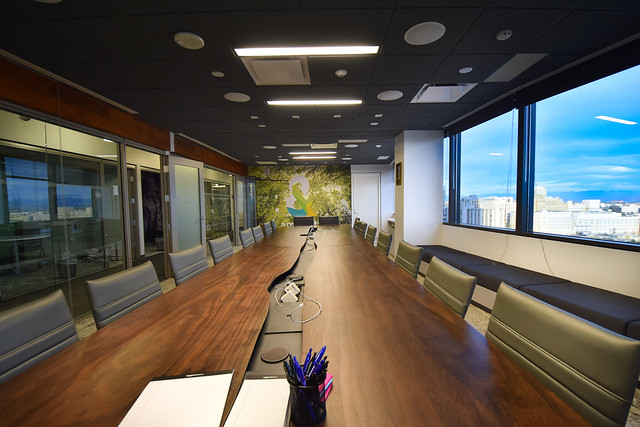 Photo credit: Jasmine Johnson
Photo credit: Jasmine Johnson
Amperity also utilizes many smaller conference spaces throughout their space, for which we incorporated a blend of traditional conference seating and soft seating, so there is a mix of formality from room to room. To keep things fun for both their employees and clients, they designed many of their smaller meeting rooms around their largest clients, including the Seattle Sounders, Nordstrom, Gap, and Hennessey & Moet.
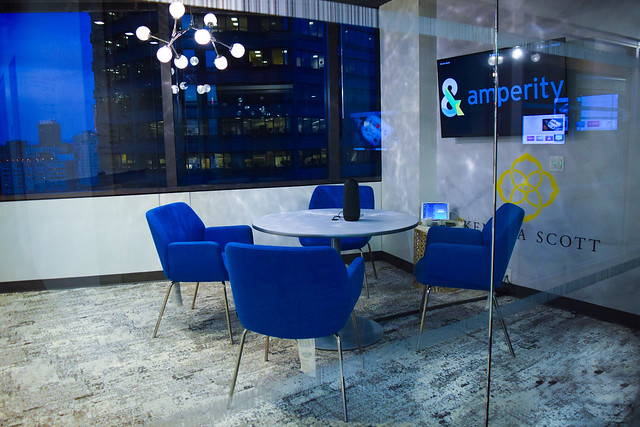
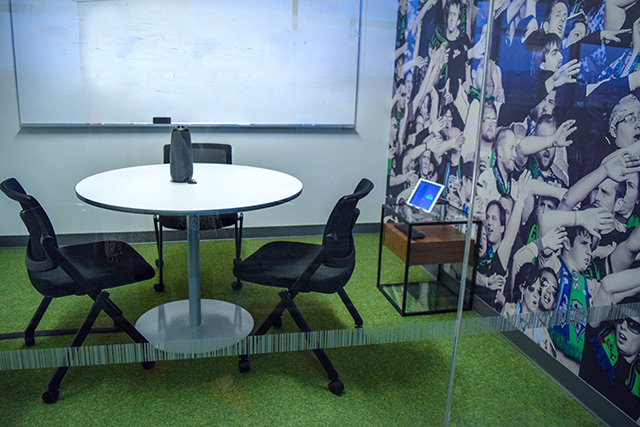

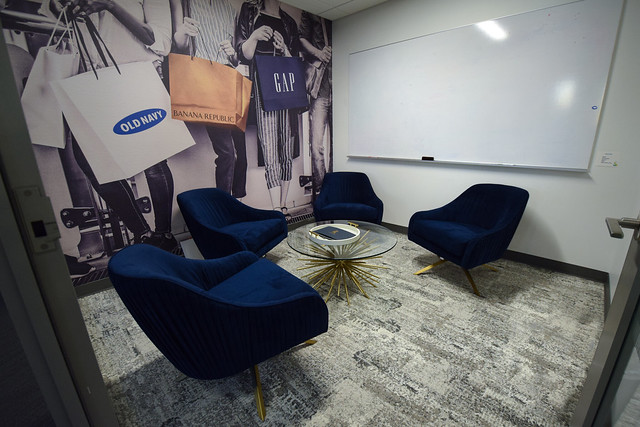
Photo credit: Jasmine Johnson
The diversity of options creates plenty of space for all employees to meet and collaborate in areas that promote creativity and productivity.
To learn more about what conference room solutions may be right for you, contact us!

